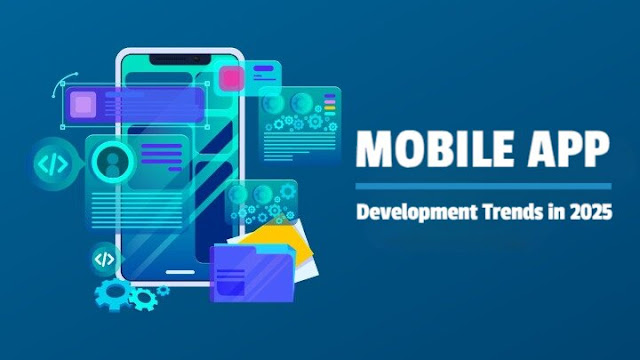Top Mobile App Development Trends in 2025
Mobile app development is evolving rapidly, and 2025 is set to be a year of bold innovation. From smarter AI integration to immersive experiences with AR and VR, staying ahead of these changes isn't optional — it's essential. Here are the Top Mobile App Development Trends in 2025 that will define the next phase of digital experiences.
#1. AI-First Apps Become the Standard
AI is no longer just a feature — it's becoming the core of app functionality. From personalized content recommendations to predictive user behaviour, AI-powered mobile apps are delivering better user experiences and business insights.
Key benefits:
- Hyper-personalization for users
- Improved decision-making through predictive analytics
- Real-time automation and chatbot responses
Real-world use: Retail apps now use AI to suggest products based on user behavior, boosting conversion rates significantly.
Explore: Artificial Intelligence and Machine Learning: Transforming the Digital Space
#2. 5G-Driven Experiences
5G isn’t just about faster downloads. It’s powering richer, real-time features like AR streaming, multi-player cloud gaming, and ultra-HD video conferencing. In 2025, expect apps to leverage 5G for smoother performance and more complex features.
Why it matters:
- Reduced latency for instant interactions
- Enhanced IoT integrations in real-time
- Greater app responsiveness and reliability
Real-world use: Apps like Google Stadia and AR-based shopping apps thrive on 5G speeds for seamless user engagement.
#3. Cross-Platform Development Gets Smarter
Frameworks like Flutter, React Native, and the rise of Kotlin Multiplatform are making cross-platform app development more efficient. In 2025, building for Android and iOS simultaneously is not just cost-effective — it's strategic.
Benefits:
- Faster time-to-market
- Unified codebase maintenance
- Consistent UI/UX across platforms
Top app development trend tip: Choose frameworks that allow native performance with maximum code reusability.
#4. Augmented Reality (AR) & Virtual Reality (VR) Integration
The future of mobile app development is immersive. AR and VR are now used beyond gaming — in education, real estate, healthcare, and retail. Expect mainstream apps to adopt AR/VR to engage users more deeply.
Benefits:
- Interactive shopping and virtual try-ons
- Hands-on training in education and healthcare
- Enhanced navigation and visualization
Real-world use: IKEA’s AR app lets users place furniture in their homes virtually — improving purchase confidence.
Read More Info: Top AR/VR App Development Company in India
#5. Super Apps on the Rise
A super app combines multiple services in a single platform — messaging, payments, shopping, travel, and more. In 2025, more companies aim to create ecosystems instead of standalone apps.
Why it works:
- High user retention and engagement
- Simplified user journeys
- Increased revenue per user
Example: Grab and WeChat dominate Asia with their all-in-one super app model.
#6. Increased Focus on App Security and Privacy
With stricter global data regulations and rising cyber threats, security is a top concern in App Development Trends 2025. Users are demanding transparency and control over their data.
Key practices gaining traction:
- End-to-end encryption
- Biometric authentication
- Zero-trust architecture
Pro tip: Secure development is no longer optional — it’s a competitive advantage.
#7. Voice Technology and Conversational Interfaces
With the growing adoption of Siri, Alexa, and Google Assistant, apps are shifting toward voice-first interactions. In 2025, expect more apps to integrate conversational AI and voice search.
Why it's important:
- Hands-free convenience
- Enhanced accessibility
- Natural user engagement
Real-world relevance: Healthcare apps are using voice to simplify patient data input and medication reminders.
#8. Edge Computing for Real-Time Performance
As real-time processing becomes critical, edge computing allows data to be processed closer to the source — reducing lag and reliance on cloud infrastructure.
Key benefits:
- Faster response times
- Reduced bandwidth consumption
- Offline functionality
Use cases: IoT devices and apps in logistics, transportation, and smart homes will heavily rely on edge architecture.
Also Read: How Mobulous is Shaping the Metaverse with Mobile App Innovation
Final Thoughts
Understanding the Mobile App Development Trends 2025 is vital for developers, startups, and enterprises looking to stay ahead. These trends — AI-first apps, 5G, AR/VR, super apps, and others — are not just industry buzzwords. They’re the building blocks of the future of mobile app development. Original Source
.jpg)
Great Insight! Great Insight! Our Python Training Institute is conveniently located near you, offering expert-led classes with a focus on practical, hands-on learning.
ReplyDeleteGreat blog and you should visit Techlancers a leading and top app development dubai service provider.
ReplyDeleteAt CMOLDS, we pride ourselves on being a top-tier game app development company. Our mission is to design and build innovative gaming solutions that combine creativity, functionality, and cutting-edge technology. Whether it’s casual, educational, or high-end 3D games, our team ensures engaging gameplay that keeps users hooked.
ReplyDelete